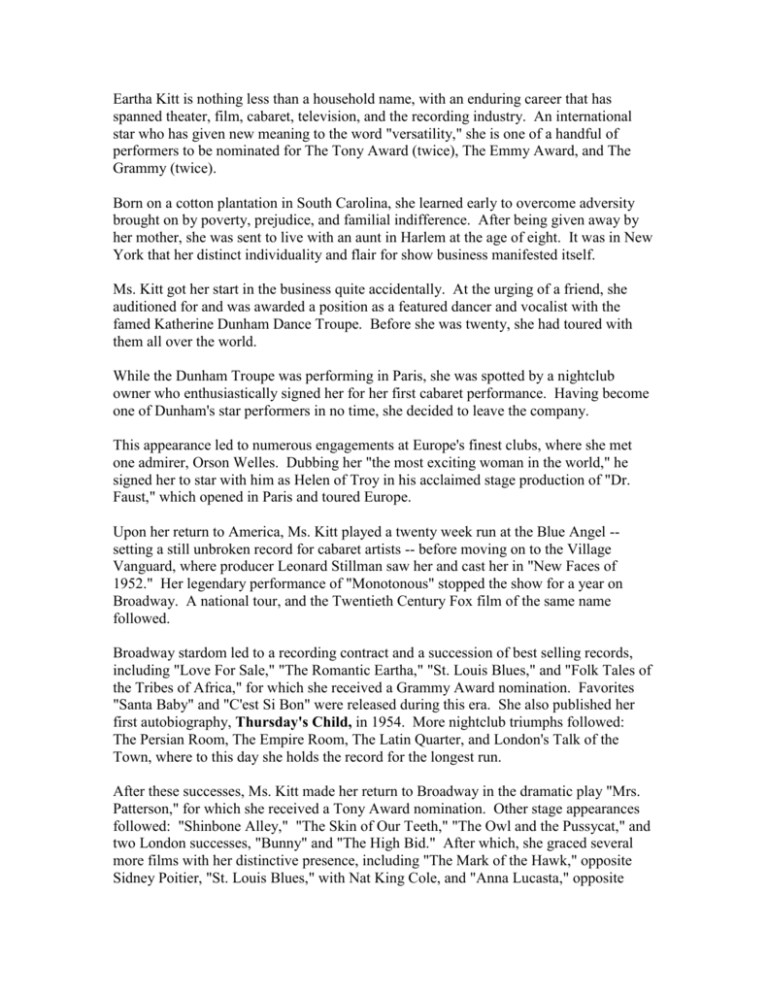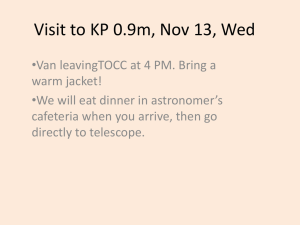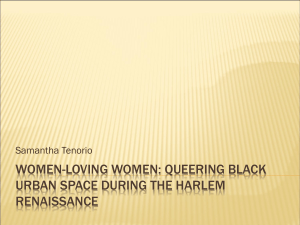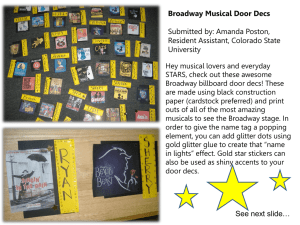Eartha Kitt is nothing less than a household name, with an enduring
advertisement

Eartha Kitt is nothing less than a household name, with an enduring career that has spanned theater, film, cabaret, television, and the recording industry. An international star who has given new meaning to the word "versatility," she is one of a handful of performers to be nominated for The Tony Award (twice), The Emmy Award, and The Grammy (twice). Born on a cotton plantation in South Carolina, she learned early to overcome adversity brought on by poverty, prejudice, and familial indifference. After being given away by her mother, she was sent to live with an aunt in Harlem at the age of eight. It was in New York that her distinct individuality and flair for show business manifested itself. Ms. Kitt got her start in the business quite accidentally. At the urging of a friend, she auditioned for and was awarded a position as a featured dancer and vocalist with the famed Katherine Dunham Dance Troupe. Before she was twenty, she had toured with them all over the world. While the Dunham Troupe was performing in Paris, she was spotted by a nightclub owner who enthusiastically signed her for her first cabaret performance. Having become one of Dunham's star performers in no time, she decided to leave the company. This appearance led to numerous engagements at Europe's finest clubs, where she met one admirer, Orson Welles. Dubbing her "the most exciting woman in the world," he signed her to star with him as Helen of Troy in his acclaimed stage production of "Dr. Faust," which opened in Paris and toured Europe. Upon her return to America, Ms. Kitt played a twenty week run at the Blue Angel -setting a still unbroken record for cabaret artists -- before moving on to the Village Vanguard, where producer Leonard Stillman saw her and cast her in "New Faces of 1952." Her legendary performance of "Monotonous" stopped the show for a year on Broadway. A national tour, and the Twentieth Century Fox film of the same name followed. Broadway stardom led to a recording contract and a succession of best selling records, including "Love For Sale," "The Romantic Eartha," "St. Louis Blues," and "Folk Tales of the Tribes of Africa," for which she received a Grammy Award nomination. Favorites "Santa Baby" and "C'est Si Bon" were released during this era. She also published her first autobiography, Thursday's Child, in 1954. More nightclub triumphs followed: The Persian Room, The Empire Room, The Latin Quarter, and London's Talk of the Town, where to this day she holds the record for the longest run. After these successes, Ms. Kitt made her return to Broadway in the dramatic play "Mrs. Patterson," for which she received a Tony Award nomination. Other stage appearances followed: "Shinbone Alley," "The Skin of Our Teeth," "The Owl and the Pussycat," and two London successes, "Bunny" and "The High Bid." After which, she graced several more films with her distinctive presence, including "The Mark of the Hawk," opposite Sidney Poitier, "St. Louis Blues," with Nat King Cole, and "Anna Lucasta," opposite Sammy Davis, Jr. In addition to her films, Ms. Kitt branched out into the medium of television. Her work included the Omnibus presentation of "Salome," and guest appearances on several series including "Mission Impossible," "I Spy," for which she received an Emmy nomination, and "Batman," still in international syndication, in which she was the infamous Catwoman. Her impressive number of recordings over the years reflects her continued musical evolution with "Thursday's Child," "I'm a Funny Dame," "In Person at the Plaza," "At Her Very Best," "Down to Eartha," "Eartha Quake," "My Way," A Tribute to Dr. Martin Luther King, Jr., and the newly released "Back in Business" which was nominated for a Grammy Award. Concert tours have taken her through Australia and Europe several times over and have included several performances for Queen Elizabeth. In all, singing in ten different languages, she has performed in over 100 countries worldwide. She was honored with a star on Hollywood Boulevard's Walk of Fame in 1960. In January 1968, Ms. Kitt's career came to a sudden about face. While attending a White House luncheon hosted by First Lady, LadyBird Johnson, she bravely spoke out against the Vietnam War. Since the tide of public opinion had not yet turned against the war effort, distortions of the incident by the Johnson Administration created negative reactions among the public and the press. As a result, Ms. Kitt was immediately "blacklisted" by much of the U.S. entertainment community. For many years, she was forced to work abroad where her status remained undiminished. It was not until several years later that she learned of the scope of the Administration's effort to blackball her. Columnist Jack Anderson was instrumental in uncovering an extensive CIA dossier on Ms. Kitt, which contained a multitude of innuendo and outright lies against her character. Despite this setback, Eartha Kitt once again proved her ability to triumph over adversity. She returned to American audiences in 1974 in an acclaimed Carnegie Hall concert, she was invited to the White House in 1978 by President Jimmy Carter, and received her second Tony Award nomination in 1978 for her starring role in the musical "Timbuktu" which ran on Broadway for two years. Her second autobiography, Alone with Me was published in 1976, and the third volume, I'm Still Here: Confessions of a Sex Kitten, was published in 1989. Ms. Kitt has remained as active as ever, writing, recording, and performing in film, television, and concert appearances. In 1982, filmmaker Christian Blackwood produced a critically acclaimed feature-length documentary on her life, entitled "All By Myself." In 1984, she released "I Love Men," containing the hit single "Where is My Man," which earned gold records in Sweden, France, and Germany. After a nine month stint as Carlotta in the "Follies" in London, Ms. Kitt starred opposite Tim Robbins in the Monty Python production of "Erik the Viking," which was released worldwide in the fall of 1989. Later that year, she recorded two successful dance singles ("My Discarded Men" and "Cha Cha Heels") with the English duo Bronski Beat. In the fall of 1991, Ms. Kitt co-starred in the comedy film "Ernest Scared Stupid." She starred in Paramount Pictures' hit comedy "Boomerang," with Eddie Murphy in 1992 and in the MGM film "Fatal Instinct" with Armand Assante, directed by Carl Reiner. In 1994, Eartha Kitt completed a star-studded engagement at New York's famed Cafe Carlyle, performing for celebrities such as Daniel Day-Lewis, Mia Farrow, and Marisa Tomei. She then sang with the Pittsburgh Symphony, performed in San Francisco, and began a tour that took her from Australia to London. In London, she performed her onewoman show "YES," based on the popular James Joyce novel "Ulysses" with music composed by Charles Aznavour. Ms. Kitt's fans are getting younger all the time. As Stephen Holden of "The New York Times" recently wrote, "Eartha Kitt is finally being discovered by the generation that thought Madonna pioneered the image of the pop singer as a gold-digging femme fatale... Her avariciously slinky stage alter ego is as classic in its way as Mae West's shimmying blond bawd, and just as funny." In 1995, Ms. Kitt was prominently featured in designer Isaac Mizrahi's Miramax documentary "Unzipped," along with a crop of supermodels. She also performed in Los Angeles, Seattle, San Francisco, St. Louis and Munich, Germany, among others. She appeared at Atlantic City's Trump Taj Mahal and sang the national anthem for the televised St. Louis Ram's home game. Ms. Kitt's most recent television work includes guest appearances on CBS's hit show "The Nanny," FOX's "Living Single" and "New York Undercover," ABC's "Jack's Place," starring Hal Linden and USA Television's action series, "Matrix." 1996 brought a seven-week stint at New York's Cafe Carlyle, attracting Denzel Washington, Christie Brinkley, Mira Sorvino and designer Thierry Mugler, among others. In Chicago, she starred in the one-woman show "Lady Day at Emerson's Bar and Grill," earning unanimous praise for her interpretation of Billie Holiday's last performance. Ms. Kitt also appeared with Rosie O'Donnell in the recent Paramount/Nickelodeon children's film, "Harriet the Spy." She plays the quirky -- and hilarious -- Agatha K. Plummer... the perfect reflection of Ms. Kitt's individualistic personality. And she performed in Los Angeles' esteemed Cinegrill, in Washington, DC, Seattle and other major cities. "Now in her fifth decade of making men nervous, Eartha Kitt still electrifies audiences with her one-of-a-kind persona, peppering her flirty set with gold-digging songs about champagne, stretch limos and pearls," said the Associated Press. Ms. Kitt continued to captivate audiences during a 12-week engagement at New York's Cafe Carlyle that began January 2, 1998. Mark Kennedy of the Associated Press noted that "in an era when cabaret is mostly musty theatre, Kitt's shows are fresh and vibrant -- and increasingly being embraced by Gen-Xers." Ms. Kitt was recently seen in a multi-city national tour as the Wicked Witch in The Wizard of Oz, which began in March 1998 to rave reviews. She is currently hard at work writing a book with her daughter titled "Down to Eartha," is in the studio recording a new CD, and can be found on the upcoming Ed Wood soundtrack for his final movie "I Woke Up Early the Day I Died." For Eartha Kitt her age was always a mystery, that is until recently when a group of students from her hometown in South Carolina unearthed her birth certificate. The document revealed that her true birthday is January 17, 1927, making this icon a young 72 years old when January 1999 roles around. You can also find Ms. Kitt's trademark voice in a number of voiceovers, including commercials for Milky Way Light and Skippy Peanut Butter. Eartha Kitt is the national spokesperson for Project On Growing, a program teaching homeless families to grow their own food and feed themselves. She resides in New York.






